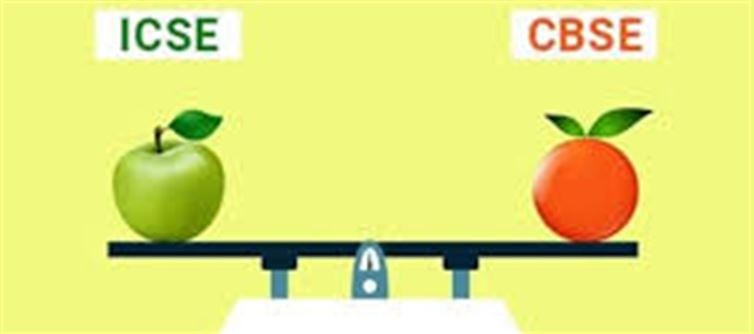
Choosing the right educational board is one of the most important decisions parents and students face. In India, the three most prominent boards—CBSE, ICSE, and State Boards—offer unique advantages and challenges. Each has its own set of strengths, and the best choice largely depends on the student’s goals, aspirations, and learning style. Let’s dive deep into each board and explore which might be the best fit for your future.
1. CBSE (Central Board of Secondary Education): The All-Rounder Choice
The CBSE is India’s most widely recognized educational board, known for its structured syllabus and student-centric approach.
Key Features:
- National Curriculum: CBSE’s curriculum is designed to ensure that students are prepared for entrance exams like JEE, NEET, and other national-level competitive exams.
- Focus on STEM: The board emphasizes Science, Technology, Engineering, and Math (STEM) subjects, which is beneficial for students looking to pursue careers in these fields.
- Uniformity: Since the syllabus is standardized across the country, students relocating between states find it easier to adapt.
- Extracurriculars: While academics are given priority, there is also emphasis on sports, arts, and life skills.
Who Should Opt for CBSE?
- Students interested in national-level competitive exams like JEE and NEET.
- Families who often relocate to different states.
- Those who prefer a structured and balanced curriculum.
2. ICSE (Indian Certificate of Secondary Education): For In-Depth Learning
The ICSE board is known for its rigorous academic standards and a focus on holistic education. It is particularly known for its comprehensive approach to subjects.
Key Features:
- In-depth Understanding: ICSE’s syllabus is highly detailed and comprehensive. It is designed to encourage a deeper understanding of subjects, especially in Humanities and English.
- Strong Focus on English: The board’s emphasis on English literature and language skills makes it ideal for students who wish to excel in communication and linguistic abilities.
- Comprehensive Assessment: ICSE focuses on project work and practical exams, promoting practical knowledge over rote learning.
- Rigorous Curriculum: It has a more detailed syllabus compared to CBSE, which may be challenging for some but is highly rewarding for those who enjoy academic depth.
Who Should Opt for ICSE?
- Students who prefer in-depth learning and have an interest in Humanities, Literature, or English.
- Students looking for holistic development with an emphasis on project work and practical knowledge.
- Those who are not focused primarily on entrance exams like JEE or NEET.
3. State Boards: Localized Learning with Regional Focus
State Boards offer education tailored to specific regional needs and cultures. While it may not have the widespread recognition of CBSE or ICSE, it has its unique advantages.
Key Features:
- Local Relevance: State Boards tend to focus on the local language and the regional culture, making it ideal for students who plan to work in the local context.
- Simplified Curriculum: The syllabus is usually less demanding compared to CBSE and ICSE, which can make it a good choice for students who might find more advanced boards overwhelming.
- Cost-Effective: education under state boards is often cheaper compared to CBSE and ICSE, making it a good choice for families looking for affordable education.
- Focus on local Exams: students may focus more on state-level exams and less on national entrance tests.
Who Should Opt for State Boards?
- Students aiming for local universities or regional career opportunities.
- Families seeking a cost-effective option with a less rigorous syllabus.
- Students who are more comfortable with the regional language and prefer a localized approach to learning.
4. Key Differences Between CBSE, ICSE, and State Boards
Feature
CBSE
ICSE
State Boards
Curriculum Focus
STEM subjects, balanced
In-depth academic focus, English
Regional subjects, language-based
Exams & Assessments
Focus on theory, practicals
Detailed projects, practicals
Regional exams, easier syllabus
Difficulty Level
Moderate
High, with deeper academic rigor
Relatively easier
Language of Instruction
English, Hindi
English
Regional language or English
Ideal For
Students aiming for national exams (JEE, NEET)
Students aiming for in-depth knowledge & academic excellence
Students focusing on local education and regional careers
5. Choosing the Right Board: Key Considerations
- Career Aspirations: If you’re eyeing national entrance exams, CBSE might be the best choice. ICSE is ideal for those interested in comprehensive learning, while State Boards may be better if you plan on focusing on regional careers.
- Location and Mobility: CBSE’s uniform curriculum across the country makes it ideal for families who frequently relocate. If staying in one region, State Boards offer more localized learning.
- Learning Style: Choose ICSE if you prefer in-depth academic content and project work. CBSE suits those looking for balance, and State Boards cater to students seeking a more region-focused approach.
6. Conclusion: What’s Best for Your Future?
In the end, the decision to choose between CBSE, ICSE, and State Boards largely depends on your child's academic preferences and career aspirations. CBSE is great for a broad range of students, ICSE suits those seeking an intensive, well-rounded education, and State Boards offer a more regional and cost-effective approach. Consider your child’s strengths, interests, and future goals before making a choice that will shape their education and career path.
Disclaimer:
The views and opinions expressed in this article are those of the author and do not necessarily reflect the official policy or position of any agency, organization, employer, or company. All information provided is for general informational purposes only. While every effort has been made to ensure accuracy, we make no representations or warranties of any kind, express or implied, about the completeness, reliability, or suitability of the information contained herein. Readers are advised to verify facts and seek professional advice where necessary. Any reliance placed on such information is strictly at the reader’s own risk.
.jpg)




 click and follow Indiaherald WhatsApp channel
click and follow Indiaherald WhatsApp channel